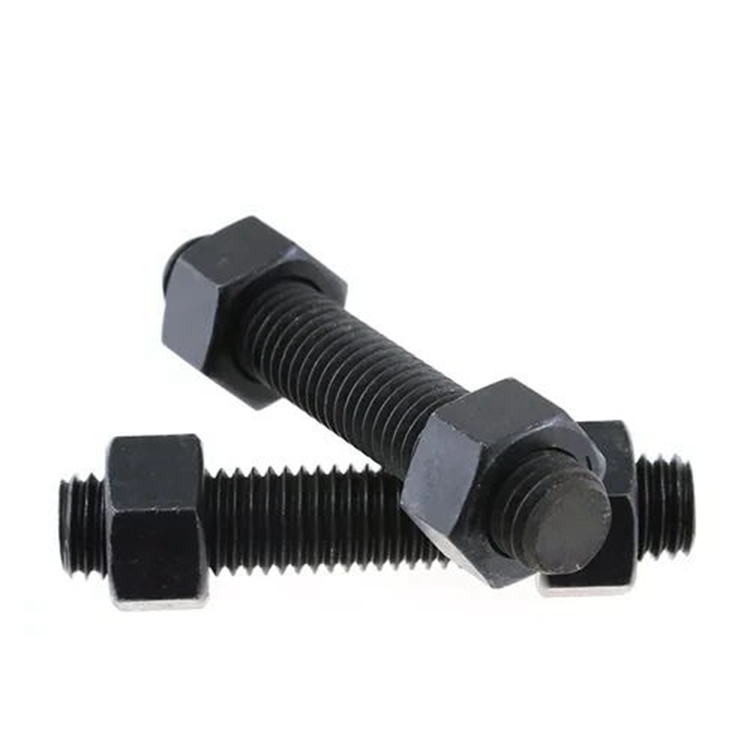Exploring the Benefits and Applications of Hex Stud Bolts in Modern Engineering Solutions
Aug . 15, 2024 19:29 Back to list
Exploring the Benefits and Applications of Hex Stud Bolts in Modern Engineering Solutions
Understanding Stud Bolts A Key Component in Engineering
In the world of mechanical engineering and construction, stud bolts play a crucial role in fastening systems that require strong and reliable connections. These threaded fasteners are specifically designed to provide substantial tensile strength, making them especially suitable for a variety of industries, including oil and gas, shipbuilding, and structural engineering. In this article, we will explore what stud bolts are, their characteristics, and the applications where they are commonly used.
What is a Stud Bolt?
A stud bolt is a type of fastener that consists of a long rod with threads on both ends. Unlike conventional bolts, which typically have a head on one end, stud bolts are designed without a head in the middle, allowing for flexible installation in tight spaces. To secure a stud bolt, nuts are placed on both ends, making it easy to create a strong connection between two or more components.
Stud bolts come in various lengths and diameters, allowing engineers to select the size that best fits their application. The materials used in their construction, such as carbon steel, stainless steel, and alloy steel, further enhance their durability and resistance to corrosion, high temperatures, and other harsh conditions.
Characteristics of Stud Bolts
One of the primary advantages of stud bolts is their ability to maintain high tensile strength. Due to their design and the materials used, they can withstand significant loads without shearing. This makes them ideal for applications that require a high clamping force.
stud bolt hex stud

Moreover, stud bolts are versatile. They can be manufactured to different specifications, such as ANSI, ASME, or ASTM standards, ensuring compatibility with a wide range of equipment and manufacturing processes. Their adaptability is further enhanced by the option to customize coatings for added protection against environmental factors.
Applications of Stud Bolts
Stud bolts are widely used across various industries. In the oil and gas sector, they are often employed in the assembly of pipelines, pressure vessels, and flanges. The reliability of stud bolts in extreme conditions, such as high pressure and high temperatures, makes them essential for maintaining the integrity of critical infrastructure.
In the construction industry, stud bolts are utilized for connecting structural steel components, ensuring stability and strength. They are also frequently found in heavy machinery and equipment, where their durability is paramount to ensure safe and efficient operation.
Another notable application of stud bolts is in the aerospace industry. Here, they are often used to secure aircraft components due to their lightweight yet strong construction. The automotive industry also makes use of stud bolts for engine assembly and other critical applications, relying on their ability to withstand vibrations and thermal variations.
Conclusion
In summary, stud bolts are vital elements in various engineering fields, known for their exceptional strength, versatility, and reliability. Their unique design facilitates easy installation and makes them ideal for numerous applications, from oil and gas pipelines to construction and aerospace components. Understanding the importance and functionality of stud bolts can significantly enhance the safety and durability of mechanical assemblies, ensuring that modern infrastructures and machinery continue to operate effectively. As technology advances, the development of even more specialized stud bolts will likely emerge, further solidifying their place in the engineering realm.
Latest news
-
High-Quality Panel Stud Bolt Reliable Panel Stud Bolt Factory & Suppliers
NewsJul.08,2025
-
High-Precision Fine Thread Locknuts Manufacturer & Supplier Custom Solutions
NewsJul.08,2025
-
PH Imperial Stud Bolt – High Strength Fasteners from Leading Supplier & Factory
NewsJul.07,2025
-
High-Quality Allen Wrench Bolts Leading Factory, Company & Suppliers
NewsJul.07,2025
-
Wholesale Ball Stud Bolt - High Quality Supplier & Factory Price Reliable Wholesale Ball Stud Bolt Company
NewsJul.06,2025
-
High-Strength Alloy Bolts Manufacturer & Supplier Quality Alloy Fasteners Factory
NewsJul.06,2025
